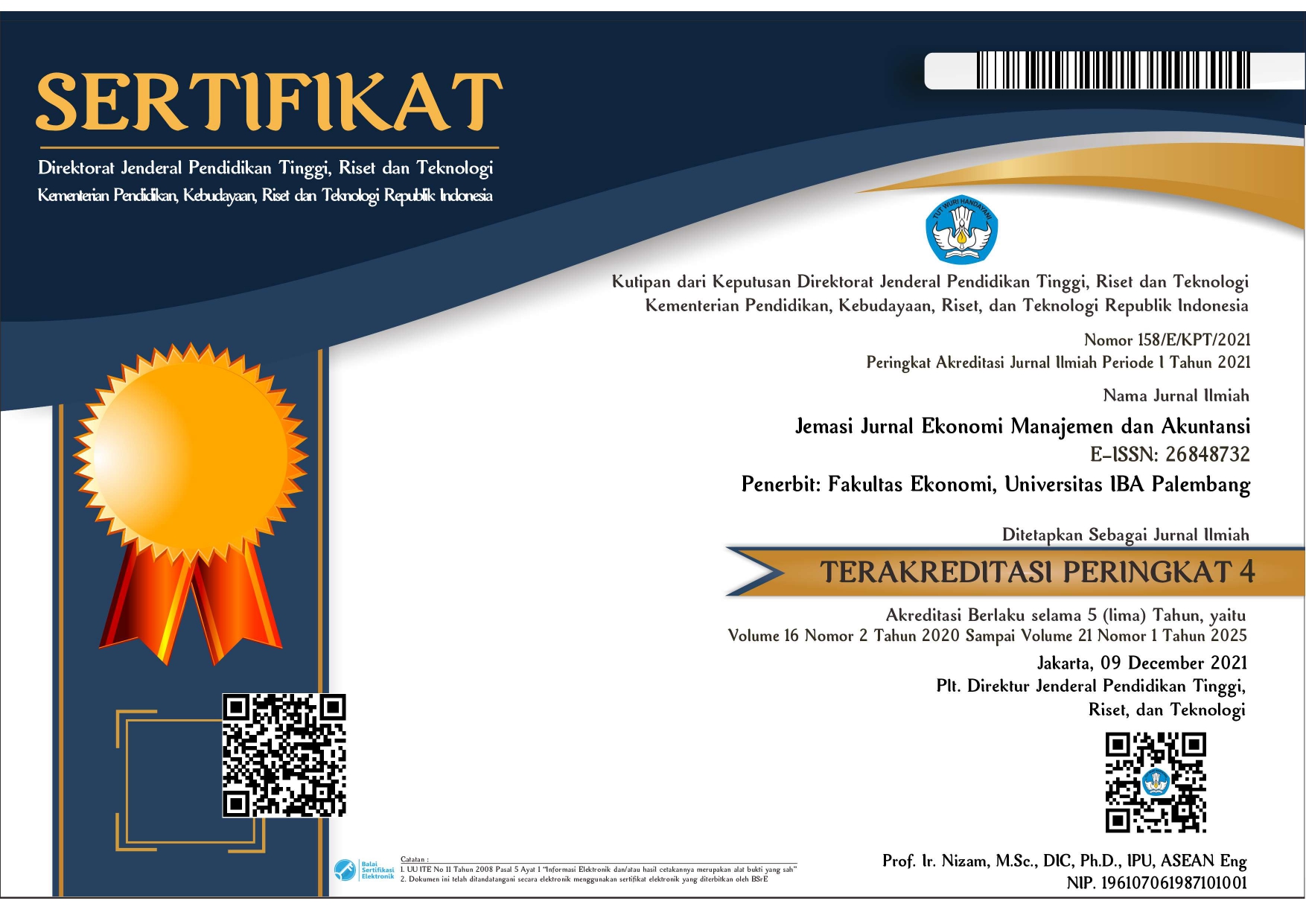THE EFFECT OF THEORY OF PLANNED BEHAVIOR AND CUSTOMER RELATIONSHIP MARKETING ON MUTUAL FUND INVESTMENT INTENTIONS
Abstract
The study tries to evaluate as well as find out the causes of investor intentions when investing their funds in mutual funds. we use a sample from Bank Mandiri on the grounds that the anomaly in the value of assets and large branches was not able to make Bank Mandiri as an entity that has the highest mutual fund investment portfolio in Indonesia. We used a total of 200 respondents in East Java, Indonesia. the data was processed with structural equation model and path analysis approaches. the results of the estimation found that Perceived Behavioural Control (PBC), Macro Factors, Subjective Norms, Customer Relationship Marketing (CRM), and Trust have a significant effect on Mutual Fund Investment Intention. We tried to moderate the effect of trust on several variables and found interesting results where Trust can be significantly moderated between PBC on Mutual Fund Investment Intention; moderation between Subjective Norms on Mutual Fund Investment Intention; and moderation between CRM on Mutual Fund Investment Intention. The results of this study show that Customer Relationship Marketing (CRM) is part of a marketing strategy to satisfy and maintain customer loyalty. CRM can be a stimulus to customer satisfaction and loyalty, that proper CRM has an impact on satisfaction and will further affect customer loyalty. This can be a reference for Bank Mandiri in developing and implementing the right CRM strategy, especially in recommending the best investment instruments according to customer needs, and can provide added value that is felt directly, both by customers and by Bank Mandiri.
Copyright (c) 2023 Mega Luminda Dewi, Ronny Ronny

This work is licensed under a Creative Commons Attribution-ShareAlike 4.0 International License.








